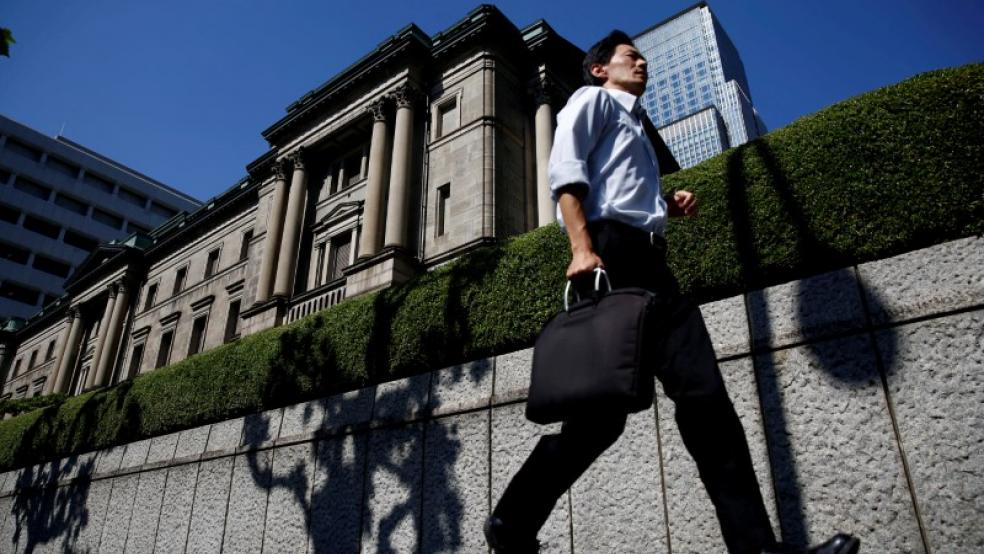TOKYO (Reuters) - Bank of Japan Deputy Governor Hiroshi Nakaso on Friday warned that the cost of U.S. dollar funding could easily spike when there is a divergence in the monetary policy direction of the United States and Japan.
But he said the BOJ saw no serious problem emerging for Japanese financial institutions, stressing that they have ample liquidity to cope with rising dollar-funding costs."While dollar-funding costs remain high, I don't see any particular problem emerging for now ... But various events lie ahead, so we'd like to monitor Japanese banks' liquidity conditions carefully," Nakaso told reporters.Major central banks, including the BOJ, also have various backstop facilities in place in case financial institutions run into trouble with dollar funding, he said."Under monetary policy divergence, U.S. dollar funding premia in the currency swap market could easily spike higher," Nakaso told a meeting of the International Bankers Association of Japan."The BOJ would continue to monitor the activities of Japanese banks so as to ensure that they would not, in response to increased funding costs for their dollar investments, embark on excessive risk taking in terms of both credit and liquidity risk," he said.The cost of dollar funding has been on the rise globally for various reasons, including stricter capital requirements that discourage financial institutions from serving as active suppliers of dollar funds.The diverging policy paths between the BOJ, which is maintaining an ultra-loose monetary policy, and the U.S. Federal Reserve, which is embarking on an interest rate hike path, is also behind rising dollar-funding costs.That has strained profits at Japanese financial institutions by heightening the cost of hedging their overseas investment.A career central banker, Nakaso has deep expertise in financial markets and dealt with the credit market freeze triggered by the collapse of Lehman Brothers in 2008. (Reporting by Leika Kihara and Tetsushi Kaijmoto; Editing by Chang-Ran Kim and Kim Coghill)Bank of Japan Nakaso warns of potential spike in dollar funding cost

KIM KYUNG-HOON



